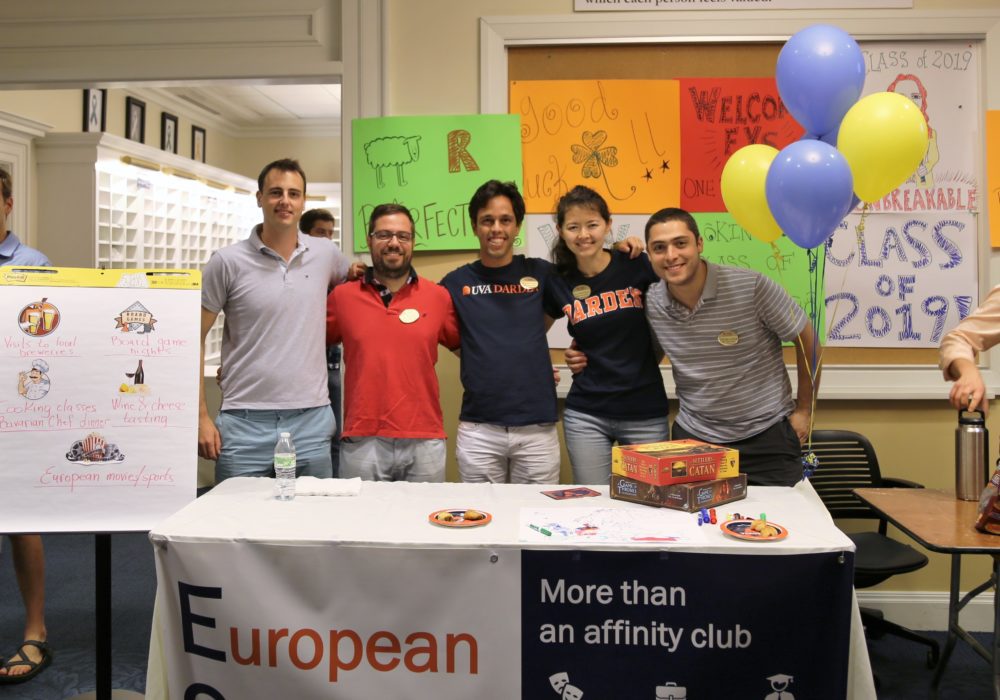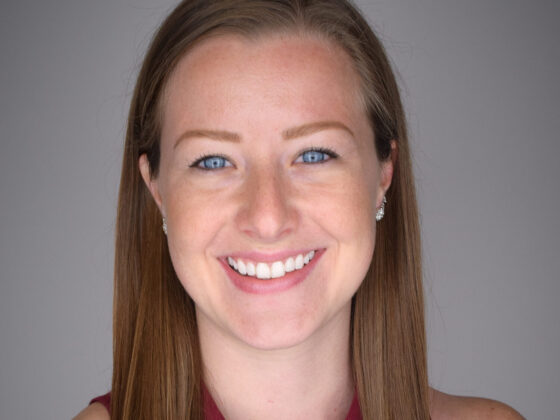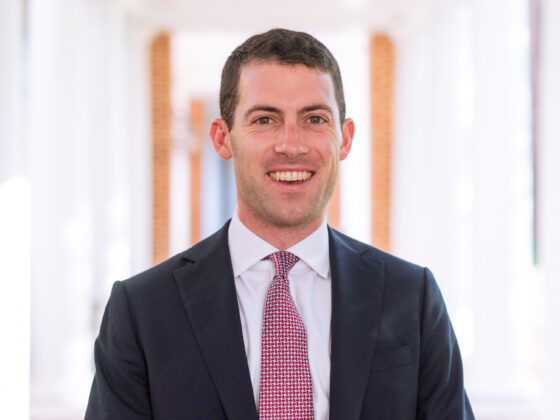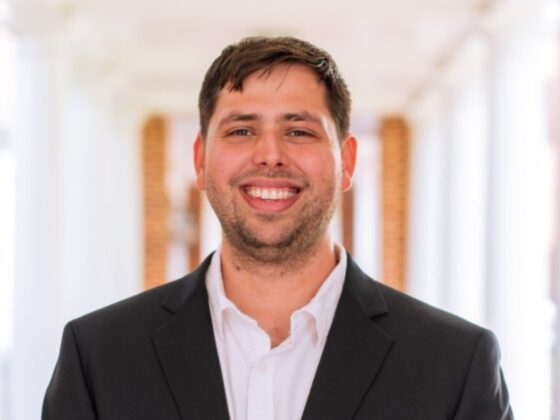By Kate Beach
Sergi Pereira, originally from Barcelona, Spain, is a second-year student at Darden. Sergi holds two bachelor degrees in Industrial Engineering and Business Administration. Before coming to Darden, Sergi worked as a management consultant at Deloitte collaborating with top financial institutions in Europe. At Darden, he serves as an admissions ambassador and as the President of the European Society.
What attracted you to Darden? How did you hear about it and what tipped your decision to attend?
I wanted to do my MBA in a place where I could get to know my classmates. The tight-knit class of Darden within the prestigious University of Virginia and the beautiful college town of Charlottesville created the best educational environment for me.
Also, I was very attracted by the emphasis that Darden puts on the case method. I believe that it is the best study approach as students learn from the most practical business view while they enhance their communication skills.
But what really tipped my decision was the students I met. They were incredibly supportive and passionate about Darden and I saw that they were seeking the same kinds of career paths that I was.
Regarding European Society, what attracted you to this club? What inspired you to pursue leadership in the club?
I wanted to give back after an amazing first year at Darden. I identified some areas where I could contribute to the community and the European Society seemed like the best platform for me to make a difference in those areas.
As a European student, I feel incredibly privileged to be here and want to extend that possibility to more prospective European students. Also, I want to provide all students at Darden with more opportunities to engage with European culture here on grounds, as well as broaden recruiting opportunities for Darden students in Europe.
How does Darden foster a global community and what role does the European Society play in that process?
Darden has tons of affinity clubs that all play a key role supporting different cultures, religions and minority groups and enhancing the global experience for all students at Darden. Courses include cases from all regions of the world and foster lively discussions among students with different mindsets. Most students also participate in global courses and consulting projects that take place in countries like South Africa and Argentina.
The European Society is committed to providing all students with a forum to pursue cultural, social and professional activities related to Europe. The organization works alongside the Career Development Center to provide resources to students seeking for job opportunities in Europe and partners with Admissions to attract talented European prospective students.
What are your plans for the European Society for this next year? Any new goals or programs?
The European Society brings the best of European traditions and customs to students. For example, we will organize cheese tastings at European Professor’s homes, cooking classes led by European chefs and board game nights. We’re even thinking about how we might introduce “siesta” on Grounds and we will celebrate the end of the year at the Bavarian Chef.
We guide students exploring careers in Europe. We provide key resources like an updated handbook with key topics about recruiting and working in Europe. We also collaborate with Darden alumni in Europe to create new and strengthen old recruiting opportunities for students.
The European Society carries out several activities throughout the admissions journey. We host coffee chats in Europe and webinars to tell prospective students about Darden. Additionally, we gather European admitted students to support them in their transition to Charlottesville.
How has your involvement in the European Society shaped your experience at Darden?
As newly elected President, I put into practice some of the general management skills that we acquire at Darden. Based on a member survey, I established a new vision for our club that included expanding our role to the careers and admissions fields. Part of the initial challenge as a leader was motivating the right people for the right positions within club leadership and to make them accountable for this new vision.
How did you make the decision to attend the China DWC at the end of your first year? What were your major takeaways from the course?
As an avid traveler, I wanted to experience a different way to explore the world and cannot be more satisfied with that experience. China was the option that interested me because of its impressive growing economy managed by an authoritative government.
In one week we visited more than ten organizations from a wide range of industries learning directly from Darden alumni and other top executives. They provided us with unique insights as they were able to compare China with the U.S.
One of my key takeaways is that China is moving so fast that there’s almost “no time” for long-term business plans. The market changes from week to week require companies to be extremely flexible with new customer preferences. However, the market is so big that many new companies are born by simply “copying” other business models.
Can you share about your internship over the summer? What did you do? Did you use what you learned on the China DWC and being involved in European Society during your internship?
I had an incredible experience at American Express in NYC this summer. I discovered a place that has such a strong corporate culture based on relationships and that provides employees with endless growth opportunities. My role within the Global Decision Support Unit of Finance was to develop a forecasting framework that better informs management decisions and to provide business insights for revenue growth.
My recent experience in China helped me not only to contribute with a first-hand understanding of the payments space in that country but also to better empathize with Chinese colleagues. As President of the European Society, I reached out to leaders of employee networks at American Express to discuss best practices that could enhance the dynamics of our organization.





